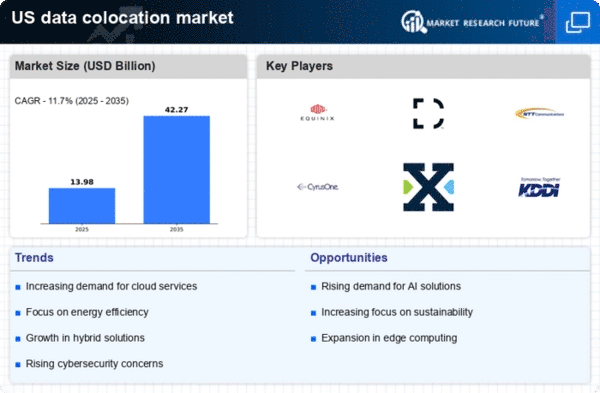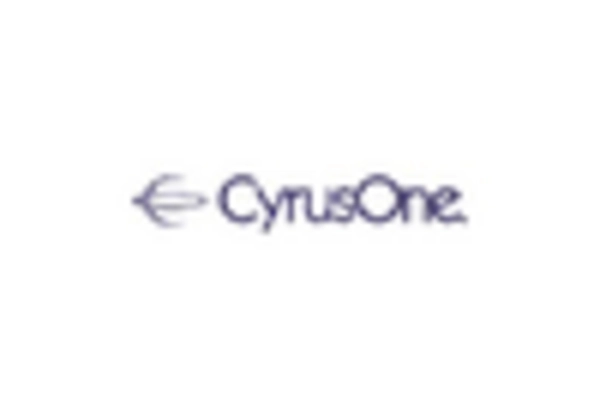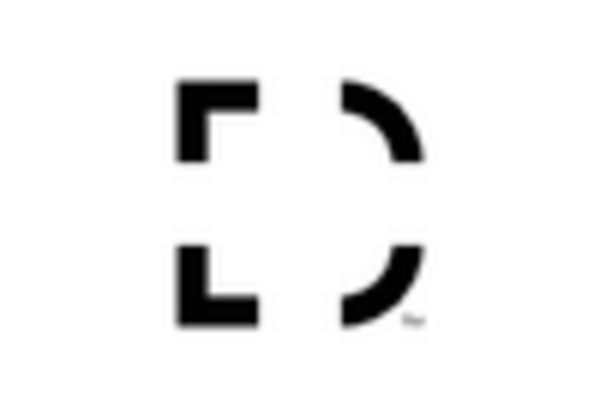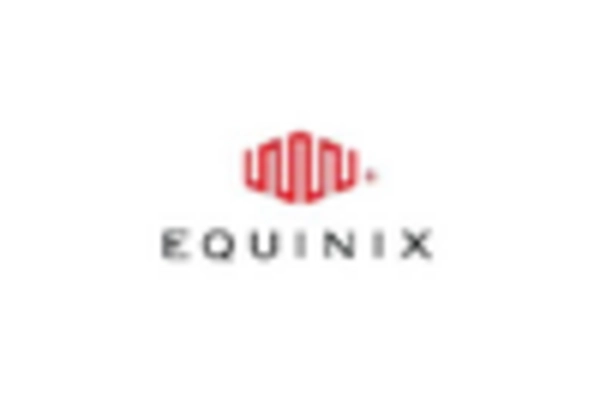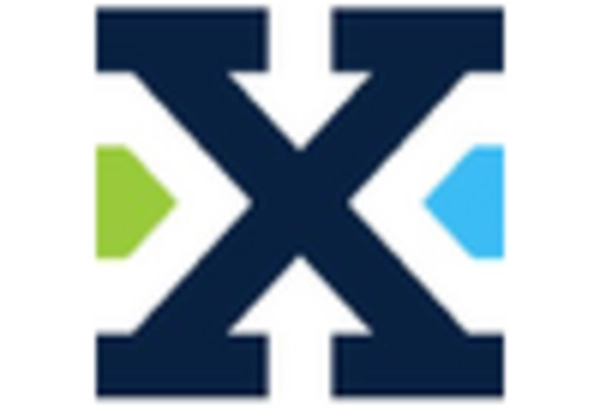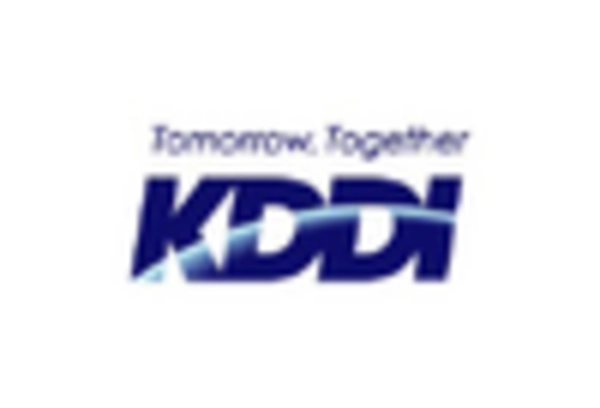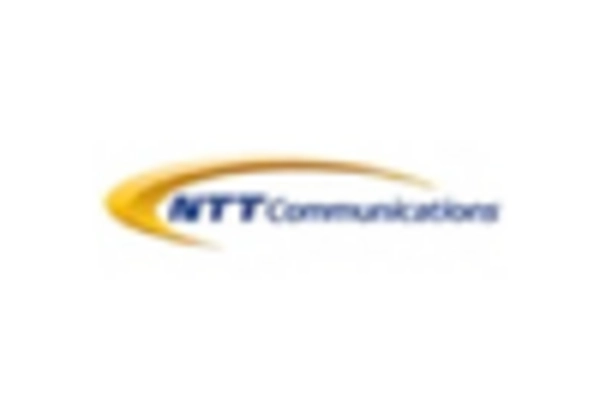Rising Data Volume
The data colocation market is experiencing a surge in demand driven by the exponential growth of data generation across various sectors. As organizations increasingly rely on data analytics, the volume of data produced is projected to reach 175 zettabytes by 2025. This trend necessitates robust infrastructure to manage and store vast amounts of information, leading to a heightened need for colocation services. Companies are seeking efficient solutions to house their servers and data centers, which is likely to propel the data colocation market forward. Furthermore, the increasing adoption of IoT devices and cloud computing is contributing to this data explosion, compelling businesses to invest in colocation facilities that can accommodate their expanding data requirements.
Regulatory Compliance
Regulatory compliance is becoming increasingly crucial for organizations operating in the data colocation market. With the rise of data privacy laws such as the CCPA and GDPR, businesses are compelled to ensure that their data storage practices adhere to stringent regulations. This compliance requirement is driving organizations to seek colocation services that can provide the necessary security and data protection measures. As a result, colocation providers are enhancing their offerings to meet these regulatory standards, which is likely to bolster the data colocation market. Companies that fail to comply with these regulations may face substantial fines, making it imperative for them to partner with reliable colocation providers that prioritize compliance.
Technological Advancements
Technological advancements are significantly influencing the data colocation market. Innovations in server technology, virtualization, and energy efficiency are enabling colocation providers to offer enhanced services. For instance, the integration of AI and machine learning into data management systems is streamlining operations and improving resource allocation. Moreover, advancements in cooling technologies are reducing energy consumption, which is a critical concern for data centers. As organizations prioritize efficiency and sustainability, the data colocation market is likely to benefit from these technological improvements. The increasing demand for high-performance computing and low-latency services further underscores the importance of adopting cutting-edge technologies in colocation facilities.
Cost Efficiency and Scalability
Cost efficiency remains a pivotal driver in the data colocation market. Organizations are increasingly recognizing the financial benefits of outsourcing their data storage needs to colocation providers rather than maintaining in-house data centers. By leveraging colocation services, companies can reduce capital expenditures associated with building and maintaining their own facilities. The data colocation market is projected to grow at a CAGR of 12% from 2025 to 2030, indicating a strong shift towards these cost-effective solutions. Additionally, colocation services offer scalability, allowing businesses to adjust their resources based on fluctuating demands without incurring significant costs. This flexibility is particularly appealing to startups and SMEs, which may not have the financial capacity to invest heavily in infrastructure.
Increased Focus on Disaster Recovery
the increasing focus on disaster recovery is a significant driver. Organizations are recognizing the importance of having robust backup solutions to safeguard their data against potential threats such as cyberattacks, natural disasters, or system failures. Colocation services offer businesses the ability to implement effective disaster recovery plans, ensuring data redundancy and minimizing downtime. The market for disaster recovery solutions is expected to grow substantially, with estimates suggesting a CAGR of 15% over the next five years. This trend indicates that more companies are likely to invest in colocation services that provide comprehensive disaster recovery options, thereby enhancing the resilience of their operations.


